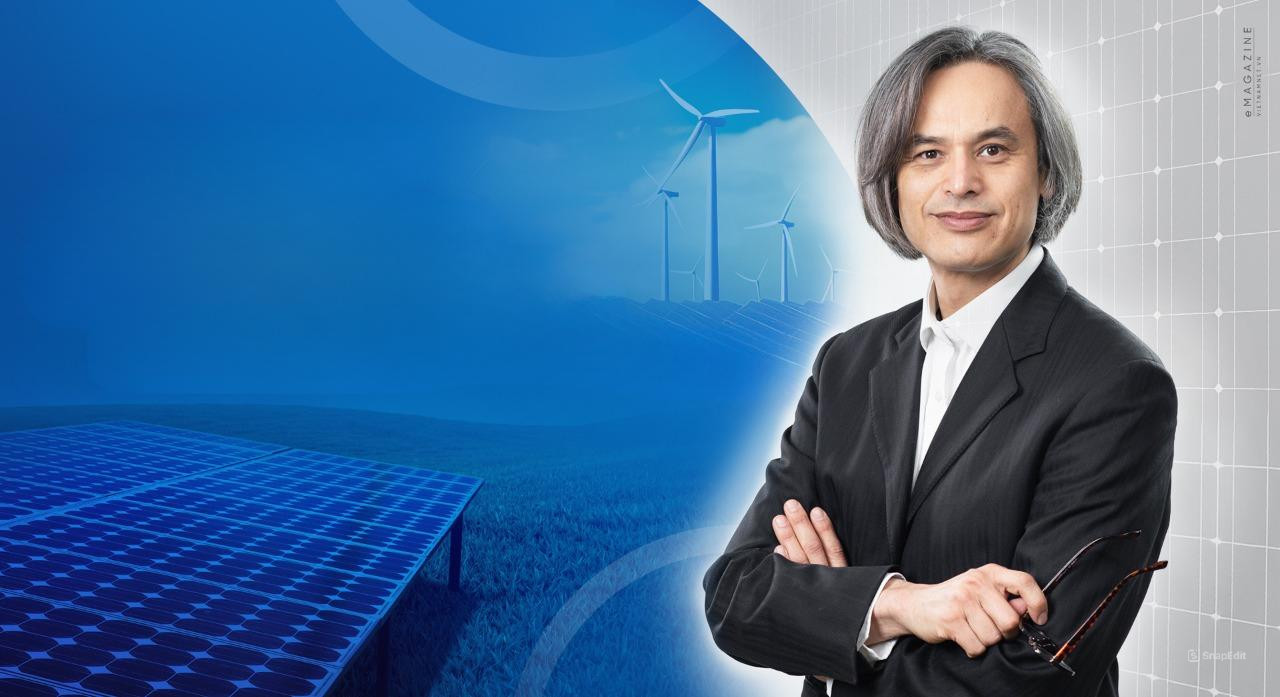
What is Vietnam’s role in the global trend towards sustainable development?
In my opinion, Vietnam can be considered a model country in terms of socio-economic development and can qualify to become a typical example of sustainable development in the world.
With its strategic location, bustling economy and commitment to green growth, Vietnam can be a successful example in both rapid economic development and transition to a low-carbon economy.
By exploiting renewable energy and cooperating with international partners, Vietnam can inspire other developing countries and prove that a green economy is a feasible task, and can also bring prosperity.
Which strategies do you think Vietnam should follow amid rapid changes in the world?
I think there are three major strategies for Vietnam to build a green and prosperous economy.
First, simplifying regulations/procedures to encourage investments in natural energy sources.
Second, providing workers with necessary skills for work in environmentally friendly fields.
Third, cooperating with other countries to access funding, experiences and technology for environment projects.
While creating an attractive environment for green investment, Vietnam will be able to attract huge capital, over $10 billion each year, for clean energy and sustainable infrastructure projects. There is a saying that one should not stand still and wait for opportunities, but should create them.
A reasonable strategy to switch to use clean energy will ensure benefits for all people. Vietnam should prioritize comprehensive policies aiming at both the sustainability of the environment and fairness for communities and relevant business fields during the transition process.
For communities in remote areas, connecting with the national grid remains an important factor for socio-economic development.
Staff in high-carbon industries around the world have proposed programs on supporting the switch to low-carbon industries. Developing offshore wind power is a feasible orientation for the offshore oil and gas industry. Meanwhile, for coal-fired power, we will need more time for the shift as power plants remain new.
What are your recommendations for Vietnam to gain groundbreaking achievements?
Like the reforms during the doi moi (renovation) which have helped unleash Vietnam’s economic potential, a strong and creative approach to energy transition may promote groundbreaking growth.
I think Vietnam should gather strength to implement its energy development planning, and deploy projects using renewables with the goal of installing solar power systems on more than half of roofs by 2030.
Vietnam should also try other renovation solutions, such as large-capacity storage device manufacturing and a smart electricity grid.
What do you think Vietnam needs to do to attract investors to renewable energy development projects?
Vietnam has great potential to attract investment in the sector. We have plentiful solar and offshore wind power sources and we follow commitments on clean energy development.
The key to attract investment is minimizing risks, because this leads to lower capital costs. Once the first projects go well, a series of other projects will follow.
Do you see opportunities for promoting science and technology cooperation between Vietnam and France/Europe in the energy sector?
The opportunities are promising, including R&D programs on smart electricity grid, green hydrogen, floating solar power and rooftop solar power in agricultural production.
Organizations such as AFD (French Development Agency), which provides technical support and helps upgrade the capability of Vietnam’s energy sector, also play an important role.
The Vietnam Energy Partnership Group, which includes European partners, makes a great contribution and is always seeks interesting proposals together with qualified experts for large-scale sustainable energy transition projects in Vietnam.
The investment cooperation in large-scale renewable energy projects, such as the cooperation between EDF (French Electricity Group) and EVN (Electricity of Vietnam) in the field of thermal power and renewable energy created in Vietnam, can also accelerate energy transition.
What should Vietnam do to create favorable conditions for businesses and scientific communities to cooperate and share experiences?
I think we need to support labor force exchange and innovation centers; set standards and remove obstacles in technology transfer; and offer incentives to cross-border energy partnerships.
Thai An - Tuan Anh